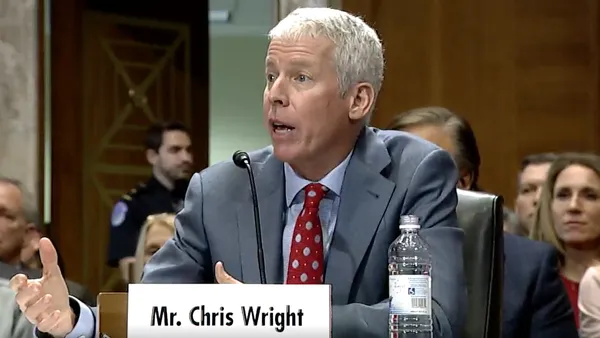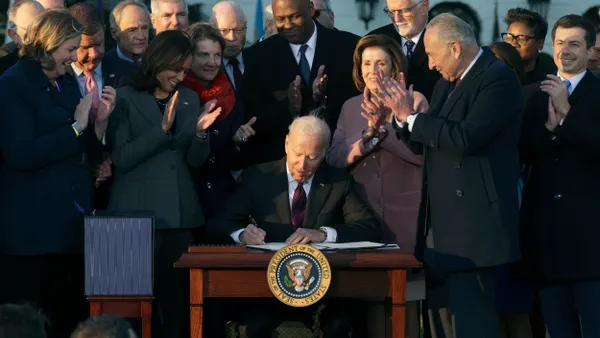Dive Brief:
- On behalf of the Global 100% RE coalition, World Future Council recently released a report that suggests 10 "building blocks" for cities trying to reach 100% renewable energy use. The blocks include developing a 100% RE blueprint, identifying financial resources and supporting decentralization and inclusion.
- The report, which relied on available experiences and shared lessons learned from places around the world, is meant to be a guide for "jurisdictions with various geographical, political, social, cultural and economic conditions."
- According to the report, more than 300 cities have committed to 100% renewable energy as of late 2016 .
Dive Insight:
The report includes ideas on how to get to 100% renewable goals, as well as how to measure and benchmark progress. Anna Leidreiter, a senior program manager at World Future Council and one of the lead authors of the report, discussed with Smart Cities Dive the plan to make a set of criteria that cities and municipalities could use to evaluate and measure themselves. The authors realized that the differences between pioneering countries, like Germany and Austria, and countries playing catch up indicate different needs.
"For the engaged cities, it was more important to have an action guide than an evaluation method," she said.
The report includes case studies from various cities, towns or municipalities around the world that have worked toward or achieved renewable energy goals. Those case studies cover everything from how cities engaged with citizens and stakeholders to estimating the potential economic, environmental and social benefits. The wide-ranging coverage of the report could also help dispel the common misconception that 100% renewable energy is simply changing fuel sources over.
According to Leidreiter, there are four keys to reaching 100% renewable energy. First, energy efficiency must be a priority. Second, there must be a paradigm shift in how energy is generated, distributed and used. Third, cities must "engag[e] new stakeholders in the market and [build] new alliances as renewable energy is sourced horizontally." Fourth, cities must adopt "an integrated approach across different policy areas."










